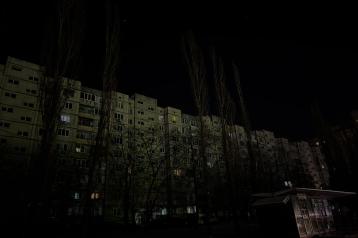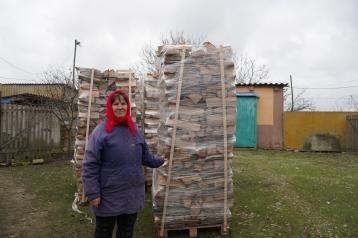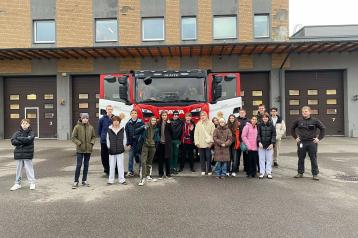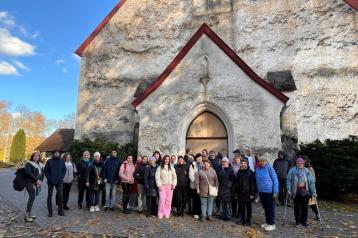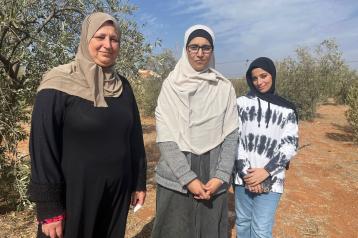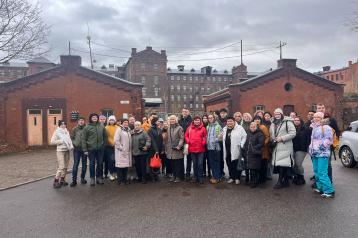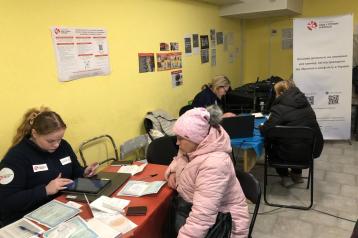Countries
With continued support from the European Union, since June 1st, the Estonian Refugee Council (ERC), French humanitarian organisation Acted, and IMPACT Initiatives (IMPACT) are three months into implementing a 12-month humanitarian project to respond to urgent needs in frontline and previously liberated areas of Ukraine.
Over the course of the project, ERC, Acted, and IMPACT, with the financial support of the European Union through its Civil Protection and Humanitarian Aid Operations, will continue to deliver live-saving multisectoral humanitarian aid, planning to help over 43,000 people in war-affected regions of Ukraine. Implemented in partnership with five Ukrainian civil society organizations, the project prioritizes vulnerable communities living closest to the frontlines in in Donetska, Khersonska, Kharkivska, Mykolaivska, Zaporizka, Chernihivska, and Sumska oblasts, where access to basic services and livelihoods remains extremely limited.
Supporting war-affected families through cash, livelihoods, shelter, and protection assistance
Since the project’s launch in June 2025, ERC and Acted are distributing targeted emergency multi-purpose cash assistance to people living in rural, peri-urban, and frontline communities where functioning markets allow cash to be one of the most efficient, dignified, and flexible forms of support. To respond to sudden emergencies, ERC and Acted will distribute rapid cash assistance to families affected by shelling or those evacuated from unsafe areas, helping them to cover their immediate needs. In total, over 28,000 people will be reached with cash assistance under this project, enabling them to cover their essential needs in a flexible, efficient, and dignified way. In addition, ERC and Acted will provide livelihoods assistance to 2,863 people, helping them rebuild income-generating activities and reduce longer-term vulnerabilities.
Protection services led by local partners will reach 1,810 people with mobile psycho-social support and legal aid, addressing the psychological and legal challenges faced by displaced and conflict-affected communities. To further promote inclusion and longer-term resilience, the partners will also scale-up their pilot activity of providing structured referrals to Ukraine’s national social protection system, for 1,150 vulnerable individuals, strengthening linkages between humanitarian and state support systems.
In parallel, to support families affected by conflict restore safe living conditions, Acted will conduct shelter repairs for 59 households and one collective centre. To help vulnerable households prepare for the colder winter months, the project will provide cash for heating to 334 individuals and in-kind winter items to 55 households where cash-based assistance is not feasible, ensuring they can maintain warmth and safety throughout winter. ERC will also support 50 households with livestock-specific winterization assistance, helping rural families protect critical sources of food and income.
Thanks to the European Union, during the past year, over 16,000 people living in frontline communities have received cash-based assistance from the Estonian Refugee Council, helping them to cover basic needs such as food, medicine, hygiene items, and rent; restart or continue livelihood activities; keep their homes warm during the harsh winter months.
“Our family used the grant to restart our livestock farm. Now we feel more financially stable and independent,” shared Ivan, who was displaced from Donetsk to the Dnipro region.
In total, ERC reached vulnerable communities in seven regions across Ukraine.
This new phase reaffirms ERC, Acted, and IMPACT’s shared commitment to delivering principled, needs-based, locally grounded, and inclusive humanitarian action.
